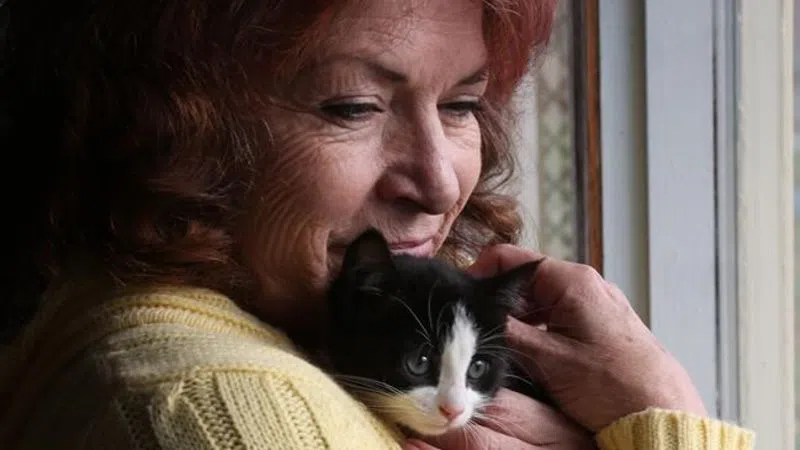
Animal rescuers rally to save feral cats soon to be left alone in N.L. town
ST. JOHN’S, N.L. — Cat lovers across Atlantic Canada are rallying to save feral felines in a Newfoundland town that will soon be abandoned, as the provincial government backs down from a plan to euthanize the animals.
Human residents of Little Bay Islands are scheduled to leave by the end of the month, leaving dozens of feral cats without the assistance they need to survive.
Carol Hull, a local advocate who has tended to the cats for years, said the colony has grown too large for her to adopt or re-home by herself.
“He loves Little Bay Islands; he doesn’t even want to leave,” Hull said while holding a jet-black kitten during a recent interview at her home off Newfoundland’s Notre Dame Bay.


